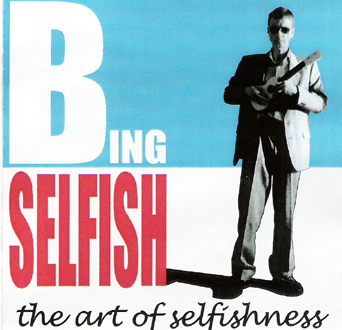
Tom is a great example of selfishness in The Great Gatsby. He is extremely selfish in the fact that he keeps a seprate girlfriend but is outraged when he fin
ds out about Daisy And Gatsby. He demonstrates his selfishness in another way as well. He hold everyone at such a high standard, he expects everyone to live moral filled lives even though he does not.
Myrtle Wilson is another example of selfishness. Mr. Wilson is very much in love with Myrtle but all Myrtle cares about is the fact that he has no money. She also cares for no one but h

erself she shows this in the fact that she gives no regard for Daisy's feelings by having an affair with Tom. She also disregards Tom's feelings when she starts screaming Daisy's name.
Gatsby is another example of selfishness in that he is never satisfied with the Daisy's love he is always saying why do you love Tom. Daisy says to Gatsby I love you both isnt that eneogh for you? Gatsby wasn't ever satisfied with himself. He believed Daisy never enjoyed his parties that he wasn't good eneogh or he had to impress her with his enormous

house. It is true she fell in love with the rich Gatsby not the poor Gatsby but either way he was selfish in some way or another.

 sn't love you. Well the truth is she did love Gatsby but only for his extreme wealth and when things started to fall apart she came back to Tom and forgot about Gatsby. She didnt attend his funeral at all and decided to run away with Tom to who knows where.
sn't love you. Well the truth is she did love Gatsby but only for his extreme wealth and when things started to fall apart she came back to Tom and forgot about Gatsby. She didnt attend his funeral at all and decided to run away with Tom to who knows where. 









